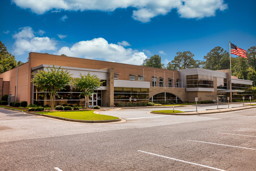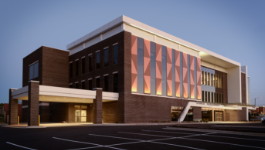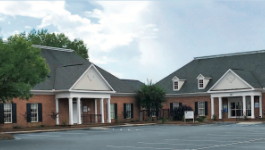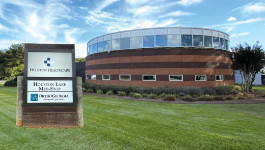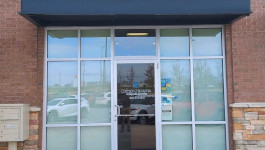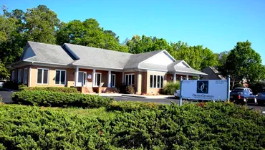Cervical Disc Disease and Arm Pain – Dr. Wayne Kelley
Care for Neck and Shoulder Pain in Central GA
Neck and shoulder pain are a common sign of degenerative changes in the cervical spine. The cervical spine consists of 7 bones (C1-C7) which are separated from one another by intervertebral discs. These discs allow the spine to move freely and act as shock absorbers during activities. At each level in the cervical spine, a pair of spinal nerves exits through small holes called foramina (one on the left and right side). These spinal nerves provide function to the body and muscles, skin, and tissues in the arms.
What Causes Neck and Shoulder Pain?
If you experience pain in your neck or shoulder, or tingling, numbness, or weakness, you may have an injury to the spinal nerves in your neck. The most common reason for this would be a “pinched nerve” or herniated nucleus propulos (HNP). This is when the intervertebral disc pushes on the spinal nerve. Neck pain can also be caused by degenerative changes like osteoarthritis in the neck which causes narrowing around the spinal nerves. The common presentation for this is weakness, numbness, or tingling in the arms, balance issues, neck or shoulder pain, clumsiness, and falls.
How Long Does it Take for a Pinched Nerve in the Neck to Improve?
The natural history of an HNP in your neck is improvement within 6 weeks. Those patients that are not improving after 6 weeks may need to be seen by an Orthopedic Spine Surgeon to determine the cause of the pain or weakness and determine other treatments. Most people will see improvement with conservative care consisting of anti-inflammatories, modification of activities, muscle relaxants, physical therapy, limited use of cervical collar, cervical traction, and steroids
How are Neck and Shoulder Pain Diagnosed and Treated in Central GA?
During the work up by your physician you may require certain tests to determine the cause of your pain or to determine which spinal nerves are involved. This work up also helps to rule out other causes of the pain, since many different ailments can cause similar symptoms. Some of these tests include x-rays, MRI, CT scan, and nerve studies.
After undergoing conservative care for 6 weeks, if the pain is still disabling or the patient is continuing to have weakness or balance issues, they may require surgery to relieve pressure off the spinal nerves. Relieving the pressure is called decompression. There are many different ways to decompress the nerves in your neck, but the most common is called anterior cervical decompression and fusion (ACDF). This means the surgeon makes an incision in the front part of the neck to get down to the HNP. The herniated disc is removed and the bone graft replaces the disc material. A small plate with screws is also used to hold the graft in place and allow the bones to fuse together (meaning becoming one solid bone) to prevent recurrence at that level. Another option is called a cervical disc replacement, which means instead of fusing the bone together you replace the disc with an implant that allows you to keep your motion. Most of these surgeries can be done as an outpatient, which means you would be able to go home the same day as your surgery. The results are >90% of relieving pain. If you are having these symptoms, you may need to be evaluated by an Orthopedic Spine Surgeon.
About Dr. Wayne Kelley Jr.
Dr. Wayne Kelley Jr., the author of this article, is one of our fellowship trained spine specialists at OrthoGeorgia. He is board-certified by the American Board of Orthopaedic Surgery and earned his medical degree from the Medical University of South Carolina. Dr. Kelley specializes in conservative and surgical treatment of all spinal conditions, with a special interest and significant experience in cervical spine problems and degenerative lumbar conditions (spinal stenosis/disc herniation). He is trained in the newest minimally invasive robot-assisted technologies for nerve decompression and fusion, which provides for smaller surgical scars, less blood loss, hyper accurate hardware placement, and faster recovery time. Dr. Kelley works with patients at our Macon Spine Center and our Dublin office.
Comprehensive Orthopaedic Spine Care in Central Georgia
OrthoGeorgia is proud to provide comprehensive orthopaedic care services throughout Central GA, including care and treatment of back pain and spine conditions in Macon, Macon Spine and Orthopaedic Center, Warner Robins, Kathleen, Milledgeville, Dublin, and Hawkinsville, GA. Our highly specialized board-certified and fellowship-trained spine surgeons, pain management specialists, and spine rehabilitation specialists work with patients of all ages to diagnose and treat a wide array of spinal disorders, including cervical disc disease, spinal stenosis, scoliosis, lumbar degenerative disc and joint disease, herniated discs, and more. We utilize Mazor Robotics technology for spine surgery, falling in line with our continued dedication to providing each and every one of our patients with the highest quality healthcare. Along with spine care, we also give those in Central GA access to total joint procedures, hand care, sports medicine care, foot & ankle care, and comprehensive rehabilitation services. Contact OrthoGeorgia to get started today!
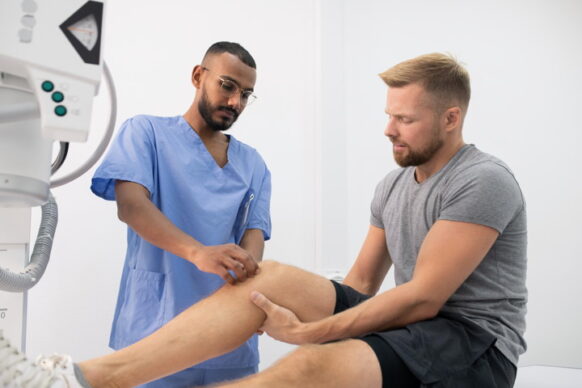
Personalized Orthopaedic Care in Central Georgia
At OrthoGeorgia, we want to help you live a healthier and more comfortable life by giving those in Macon, Warner Robins, Kathleen, Milledgeville, Dublin, Hawkinsville, and the surrounding areas convenient access to the highest quality care. Whether you have been suffering from a sports injury or a common orthopaedic condition, we will determine the cause of your discomfort and craft a personalized treatment plan to bring you relief. To learn more about our services and our physicians, or to schedule an appointment at OrthoGeorgia, please contact us today.
